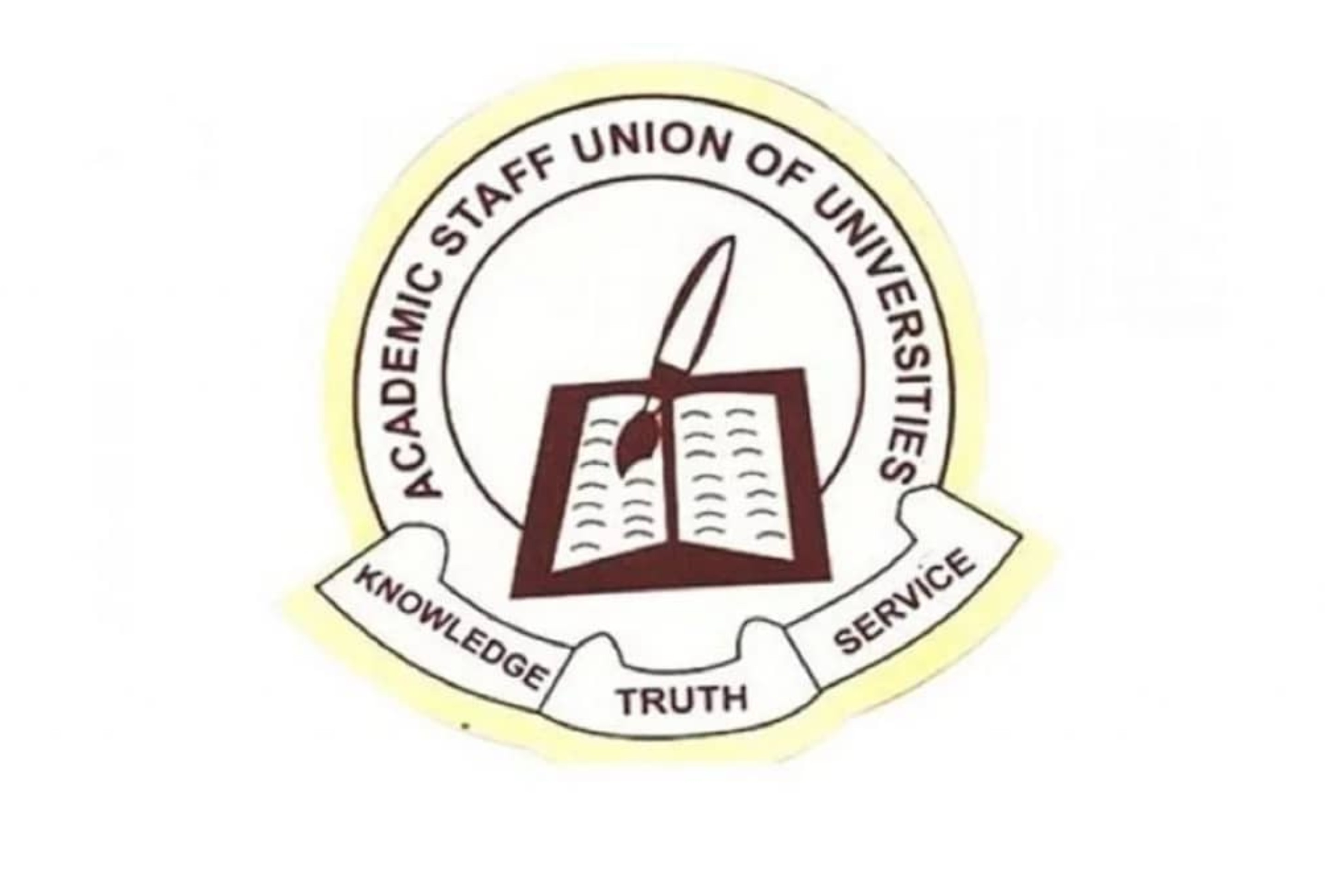News
Nigeria Needs Industrial Revolution -AfDB
The African Development Bank (AfDB) has called on President Bola Tinubu’s administration to set the right pathway to prosperity for Nigeria.
The AfDB President, Dr Akinwumi Adesina, said this while delivering a keynote at the Business Day Chief Executive Officers (CEO) Forum in Lagos.
The keynote address was titled “The Day the Lion Roared! Making Nigeria a Global Industrial and Economic Giant”.
Adesina likened Nigeria’s case to that of Simba in The Lion King who after several challenges returned from exile to rule over his people as King after the death of his father.
“Nigeria, like the cub Simba, has great promise. But the promise is yet to be realised.
“The day that Nigeria wakes up and becomes a lion king, everything will change for its people; and everything will change for all of Africa.
“Nigeria should never be a poor country, and Nigerians are tired of being poor.
“For now, Nigeria is developing too slowly and well below its potential. The challenge is for the lion to roar. Then we will have the making of an economic giant.
“The key for that is for Nigeria to have an Industrial Revolution,” he said.
Adesina said the share of manufacturing in the GDP of Nigeria had hovered around seven per cent in the past decades.
According to him, the nation has not been able to extricate itself from the comatose of its industrial manufacturing sector to unleash the fullness of its potential.
“The performance of the manufacturing sector in the past five years has been poor. Between 2015-2017, the sector declined by -1.5per cent, -4.3per cent and -0.2per cent.
“This is in sharp contrast to the dynamic and rapid performance of manufacturing in Asian countries, such as Singapore, Malaysia, India, and China.
“The manufacturing sector of Nigeria represents only three per cent of the total revenue from exports but accounts for 50 per cent of imports in the country.
“Instead of being forward-looking in expanding the share of the manufactured goods in its total export revenue, Nigeria focuses on the model of import substitution,” Adesina said.
According to AfDB President, the country has a manufacturing sector that cannot develop to compete globally, but limits itself to “survival mode”, not a “global manufacturing growth mode”.
He said a well-developed and policy-enabled manufacturing sector, with export orientation, will spur greater innovation, industrial policy for export market development and structural transformation of the economy.
He said rather than being consumed with conserving foreign exchange, the focus should shift to expanding foreign exchange through greater export value diversification.
Comparing Nigeria’s trade performance with Malaysia and Vietnam, Adesina said while Nigeria’s export hardly changed, Malaysia and Vietnam used aggressive horizontal and vertical industrial manufacturing diversification to move from low-value products to high-value market products.
“The result is seen in the comparative wealth of the three countries.
“While export value per capita is 7,100 dollars for Malaysia and 3,600 dollars for Vietnam, it is only 160 dollars for Nigeria.
“While Malaysia and Vietnam moved to global manufacturing growth, creating massive wealth and jobs for themselves.
“Nigeria remains in a ‘survival’ mode, still unable to substitute the imports of its petroleum products while being one of the largest exporters of crude oil,” he said.
According to him, African countries, including Nigeria have had policies, templates and programs for industrialisation and expanding industrial manufacturing for decades, but there is a huge gap between policy ideas and actions.
News
Over 1,500 RSU Students Apply For Education Loan

News
EFCC, Immigration Repatriate 51 Foreign Cybercrime Convicts

The Economic and Financial Crimes Commission (EFCC) and the Nigerian Immigration Service have repatriated 51 more foreign nationals convicted for cyber-terrorism and internet fraud.
The latest group of deportees, according to a statement by the EFCC, yesterday, includes 50 Chinese nationals and one Tunisian.
The repatriation, which took place yesterday, brings the total number of convicted foreign nationals deported in the ongoing exercise to 102 since its commencement on Friday, August 15, 2025.
These convicts were among the 192 foreign nationals apprehended during a recent sting operation conducted by the Commission in Lagos.
The operation followed actionable intelligence regarding the activities of one of the largest foreign-led cybercrime syndicates operating within Nigeria.
The EFCC statement read, “This exercise demonstrates our unwavering commitment to ensuring that Nigeria is not a safe haven for international criminals.
“The successful conviction and repatriation of these individuals send a clear message: we will not tolerate the use of our nation’s digital space for illicit activities that undermine our economy and national security.”
The Commission stated that further deportations are scheduled to take place in the coming days as the exercise continues.
NELFUND To Stop Students’ Upkeep Loans During Holiday
The Nigerian Education Loan Fund (NELFUND) says the upkeep loan disbursement is now strictly tied to the academic session of each institution.
NELFUND made this known yesterday in a statement signed by its Director of Corporate Communications, Oseyemi Oluwatuyi.
“In line with this directive, students shall only be entitled to upkeep loans for their current academic session. Upon the conclusion of an institution’s academic year, upkeep payments for that session shall automatically cease.
“Consequently, students who transition into a new academic year will no longer receive upkeep disbursements for the preceding session,” Oluwatuyi said in the statement.
NELFUND further stated that interested loan applicants are required to apply for the loan at the beginning of every academic session to be eligible for both institutional charges and upkeep for that particular session.
“To ensure accuracy and transparency, the NELFUND loan portal is being automated to reflect this adjustment. The portal will henceforth display only the upkeep loans that have been collected by each student within the relevant session.
“Institutions are therefore strongly advised to upload their academic calendars and sessional information in a timely manner to guarantee that their students receive the full upkeep benefits due to them for an entire academic year,” he stated.
Apart from institutional loans disbursed directly to institutions, beneficiaries of the student loan scheme enjoy monthly disbursement of N20,000 which amounts to N240,000 yearly.
With the new directive, students will only enjoy the monthly N20,000 during academic session while payment will be ceased when students embark on holidays.
News
ASUU Threatens Fresh Strike, Rejects FG’s Loan Scheme

-
Business3 days ago
Bayelsa Recommits To Agro-Economy Diversification … As Delegation Rounds-Off Rwandan Tour
-
Business3 days ago
Shippers Council Seeks collaboration Against Stowaways
-
Politics3 days ago
Rivers APC Chairmanship Candidates Hail Tinubu, Yilwatda Over By-Election Victory
-
Politics3 days ago
PDP Drags Osun Federal Lawmakers To Court Over Defection To APC
-
Niger Delta3 days ago
Oborevwori Pledges Commitment To Renewable Energy Investments In Delta … As Delta Signs MoU With REA
-

 News3 days ago
News3 days agoOver 1,500 RSU Students Apply For Education Loan
-
Business3 days ago
FG Commits To Building Modern Maritime Sector
-
Politics3 days ago
Benue Assembly Resolution: Alia Suspends SUBEB Boss, Others

